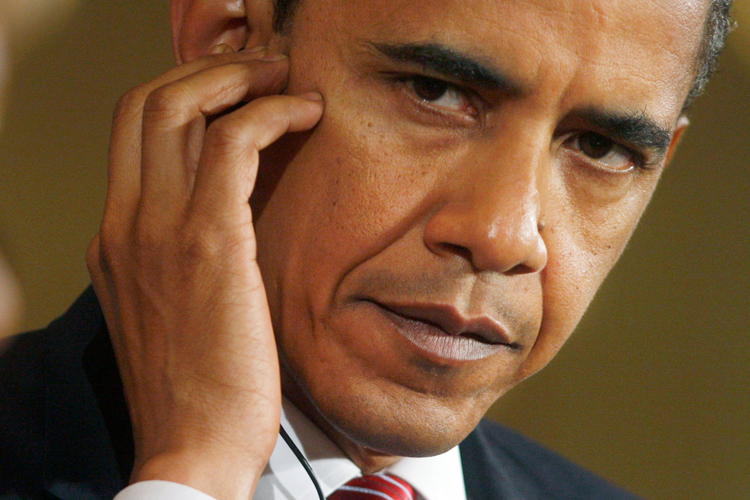Why is Barack Obama so intent in ensuring that telecom companies are immune from legal liability from cooperating with government snooping?
On Friday, the Guardian’s Spencer Ackerman broke the news that “the White House has asked legislators crafting competing reforms of the National Security Agency to provide legal immunity for telecommunications firms that provide the government with customer data.”
In a statement of principles privately delivered to lawmakers some weeks ago to guide surveillance reforms, the White House said it wanted legislation protecting “any person who complies in good faith with an order to produce records” from legal liability for complying with court orders for phone records to the government once the NSA no longer collects the data in bulk.
As Ackerman notes, this isn’t the first time Obama has gone the extra mile to look out for the telecom companies. When he was running for president in 2008, Obama campaigned against granting telecom companies immunity for cooperating with a secret, warrant-free, domestic wiretapping program authorized by George W. Bush. But after securing the Democratic nomination for president, Obama voted, as senator, for the bill to grant retroactive immunity.
There are at least two red flags here.
1) One of the “competing reforms” currently circulating in Congress, sponsored by House Intelligence Committee chairman Mike Rogers, R-Mich., would explicitly allow the government to access phone records without a warrant. If that bill became law, with the telecom immunity proviso included, the government would have vastly expanded spying authority while, at the same time, the telecom companies would have no incentive to resist government overreach.
2) As Marcy Wheeler points out, Ackerman’s scoop is best understood in conjunction with a New York Times story published over the weekend that suggests that President Obama’s plan to restrict the NSA’s ability to request information in bulk will actually lead to the NSA being able to obtain more information about our activities than currently.
At the N.S.A., there is grumbling about the continuing disclosures of material stolen by Mr. Snowden, but comparatively little complaint on the new limits Mr. Obama has proposed. In some cases, the N.S.A. gained some access to data even as it lost some autonomy. For example, its program to collect metadata missed a large percentage of cellphone calls. Under Mr. Obama’s plan, if it becomes law, the N.S.A. would have to leave that data in private hands, but when the N.S.A. does get it, under court order, the agency should have access to a lot more than it does today.
“It’s a pretty good trade,” said one senior intelligence official who has been working on the issue. “All told, if you are an N.S.A. analyst, you will probably get more of what you wanted to see, even if it’s more cumbersome.”
Again, increased intelligence gathering authority for the NSA, combined with telecom immunity, adds up to a scenario in which there are fewer checks on government spying.
In the post-Snowden world, that’s not how it’s supposed to work.


